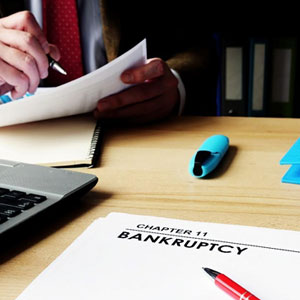 The following article will cover:
The following article will cover:
- How Chapter 11 bankruptcy affects the operations of a business.
- The advantages of filing for Chapter 11 bankruptcy.
- The treatment of existing contracts and leases in Chapter 11 bankruptcy.
How Does Chapter 11 Bankruptcy Affect The Operations Of A Business?
Chapter 11 bankruptcy is designed to allow a business to continue operations while under court supervision. This process requires monthly reporting of income, expenses, and any accrued, unpaid debts. It’s analogous to being in a hospital, where your vital signs are continually monitored. A critical point to remember is that any actions outside the ordinary course of business necessitate approval from the bankruptcy court.
What Are The Advantages Of Filing For Chapter 11 Bankruptcy?
Bankruptcy filing is often considered the last resort when other debt resolution strategies have failed. Labeled as “financial atomic warfare”, it brings along significant benefits when opted for correctly.
In a Chapter 7 bankruptcy, for example, the business is liquidated and a third party comes in to assess the assets. This potentially leads to lawsuits against the owner for fraudulent conveyances, preferential transfers, or possible breaches of fiduciary duty.
On the other hand, the flexibility provided by Chapter 11 could be instrumental in solving your debt problems. A Chapter 11 filing lets you stay in control, providing the opportunity to restructure, infuse more capital, reduce debt, and continue running your business.
What’s more, some transactions can be performed tax-free under Chapter 11. For example, the transfer of real estate in certain states can be free of tax consequences according to Bankruptcy Code Section 1146.
What Would Be The Disadvantages Of Filing For Chapter 11?
The most significant disadvantage of Chapter 11 often lies in the entrepreneur’s personality. Generally, entrepreneurs value their independence and might find the constant scrutiny uncomfortable. The obligation to provide monthly operating reports, the need to respond to a trustee, or seeking permission from the bankruptcy court for specific actions can feel restrictive. These feelings of constraint can present a significant downside for those not accustomed to such control.
What Happens To Existing Contracts And Leases In Chapter 11 Bankruptcy?
In a Chapter 11 bankruptcy, the debtor can decide what to do with an existing executory contract or lease—either to assume (keep) it or reject it.
This decision is primarily driven by economic considerations. If the lease is beneficial—perhaps it’s below market value—the debtor will likely want to retain it. However, if the lease is burdensome, the debtor can reject it.
In such cases, the lease becomes a prepetition unsecured debt, treated similarly to other unsecured debts and paid in what’s known as “bankruptcy dollars”. These creditors usually receive less than the full value of their claim, the exact amount determined by the financial status of the company in Chapter 11.
Alternatively, if the lease is an asset—perhaps it’s marketable or below market value—it can be sold to generate funds for the company.
When a debtor chooses to assume a lease, any owed pre-petition money must be paid eventually. This “cure” of the default doesn’t need to be immediate but should occur over a reasonable time frame. The debtor should also provide “adequate assurance” of future performance, which might include an additional deposit, a bond, or an extra guarantee.
In summary, Chapter 11 bankruptcy provides a useful means of handling burdensome leases, either through rejection or conversion into an asset for the company.
For more information on the Impact Of Chapter 11 Bankruptcy On A Business, an initial consultation is your next best step. Get the information and legal answers you are seeking by calling (212) 739-7599 today.

Call For Free 15 Minute Consultation
(212) 739-7599

